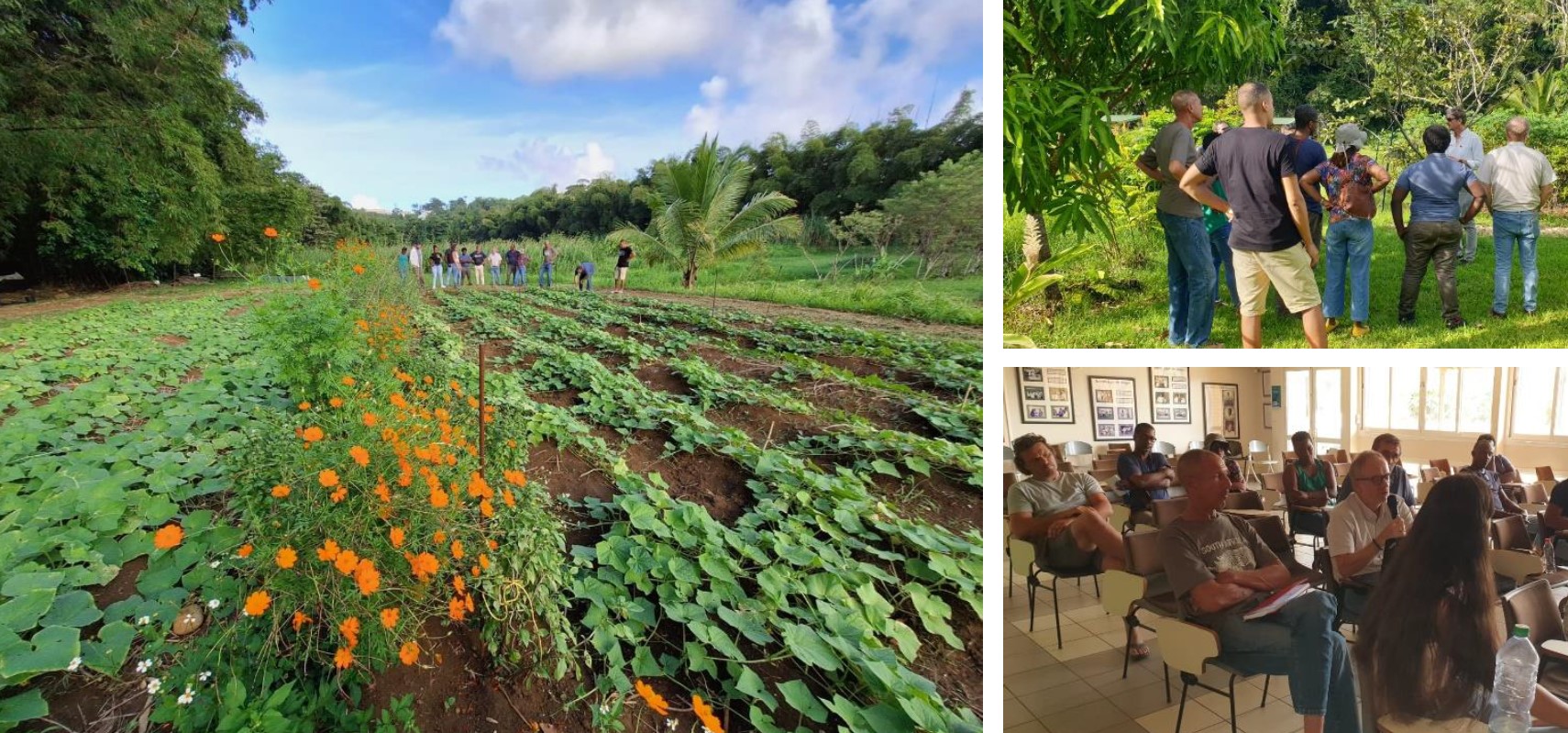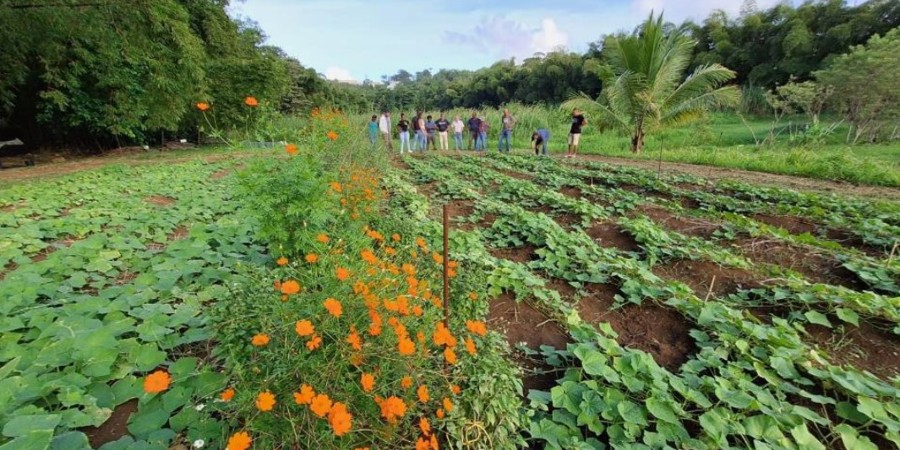By Margot GUMBAU, with Johanna KUPKA, Laurent PENET, Régis TOURNEBIZE, Jean-Marc BLAZY
One of the topics of interest to researchers at our INRAE Guadaloupe Innovation Hub is to better understand how market gardeners can manage pest control without the use of chemical inputs.
Survey: Factors influencing farmers’ adoption of service plants for pest regulation
From March to September 2023, researchers conducted an ex-ante (or predictive) evaluation looking at the interest and feasibility of implementing conservation biological control within cucumber crop management systems, in this case using ‘service plants’. In this case, service plants can be used to attract beneficial pest-controlling insects to help regulate Diaphania sp., or moth pests of cucurbits.
During the study, 30 farmers were interviewed from across the region, a third of whom are certified organic.
Main barriers and lever to implementation
The farmers identified three major barriers to using service plants as a way of controlling pests:
- workload,
- knowledge,
- economic profitability (risk of yield loss, cost of implementation etc.).
Alongside this, the main levers the farmers identified that would encourage them to adopt this practice were
- access to knowledge,
- choice of services plants with biological traits fitting their expected needs.
What are farmers looking for?
The major characteristics sought by farmers in terms of satisfactory traits are:
- ease of management (perennial, easy to sow, etc.) (32%),
- economic traits (remunerative, inexpensive, etc.) (23%),
- melliferous (honey producing) capacity of plants (18%).
This preliminary study enabled us to make choices in terms of service plant species taking into account farmers’ preferences in the design of the alternative management systems.

Karusmart experimental micro-farm field event
Planting flower strips – exploring the presence of beneficial insects
On November 16, we held an event to share our findings with participating farmers and other stakeholders in the market gardening sector. We visited a cucumber plot on the IH Guadeloupe Karusmart experimental micro-farm which had a flower strip sown next to it.
This plot was designed following the survey and the current experiment aim to assess the presence of beneficial insects thanks to the flower strip, to evaluate the damage caused by Diaphania sp., to look at the rates of Diaphania sp. regulation by beneficial insects, and to evaluate the efficiency of the system (working time, yield, etc.).
Next steps
Moving into 2024, our aim is to replicate this experimental plot directly with volunteer farmers so we can assess the system's effectiveness under in-situ conditions.
Find out more about the INRAE Guadeloupe Innovation Hub




